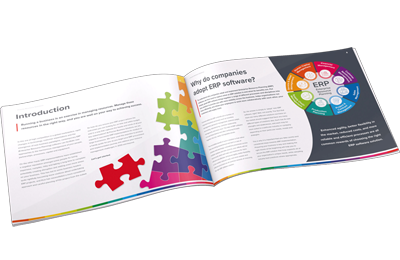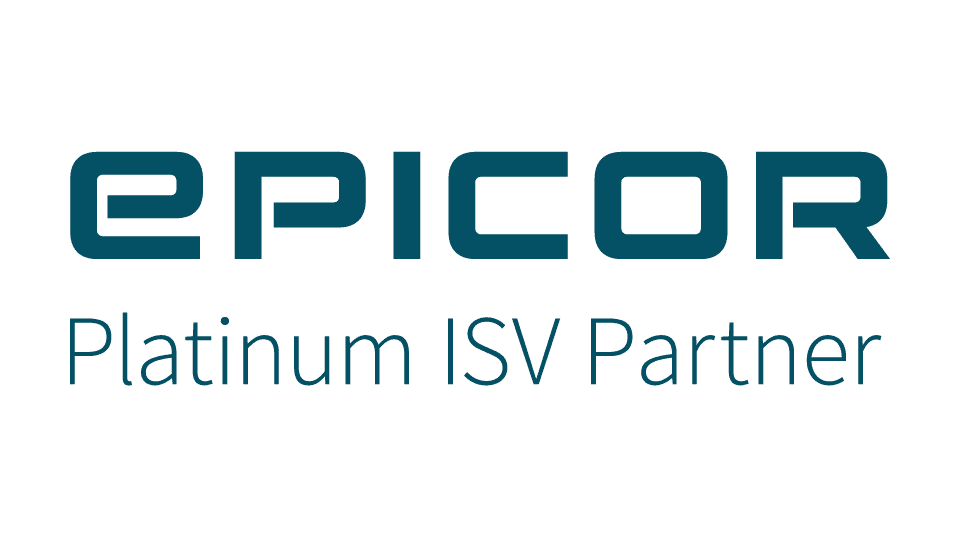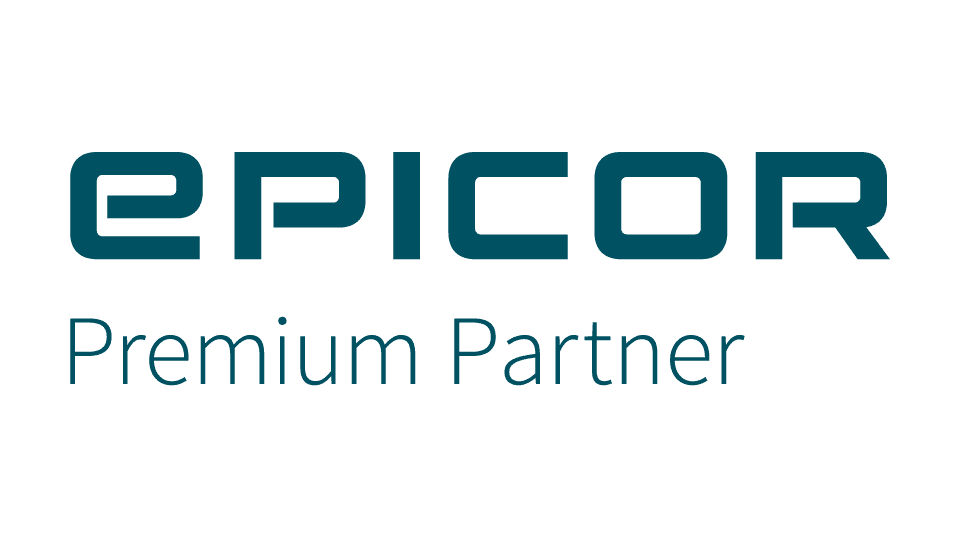Hybrid ERP
Choosing an enterprise resource planning (ERP) deployment strategy doesn’t necessarily mean deciding between cloud and on-premise solutions. Both offer advantages, and both can add value to your organisation. A hybrid ERP system allows you to combine the best of both options.
This approach could take one of many different forms, such as:
- Using your existing investment in technology infrastructure and people to host the core ERP solution – perhaps even a legacy system that is dependent on specific hardware and operating system configuration – blended with other non-core, cloud-based systems.
- Or this is flipped – some legacy purpose-specific software is kept “in-house” on the existing server platforms but integrated with the new ERP solution, deployed in a public cloud architecture.
- Or as another variation, rather than managing the new ERP solution on its own hardware/network the business rents space and resource in a hosting service/data centre as a fully managed environment. In this approach the ERP itself is sold as a perpetual license but sits n cloud-based infrastructure.
Some see hybrid as a long-term investment, while others see it as a stepping stone toward a complete cloud service. Whichever way you see it, hybrid may offer flexibility and reliability, allowing you to maintain control over your system without compromising on speed, accessibility, and agility.
What does the term hybrid ERP solution mean?
The term hybrid ERP solution refers to enterprise resource planning software that combines elements of on-premise and cloud deployment.
On-premise ERP gives an organisation complete control over their system at what may be a lower overall cost than comparable cloud solutions. What’s more, an on-premise solution can help businesses meet industry-specific data storage or other compliance regulations. However, this strategy also demands significant upfront expenditure and limits the ability to adapt and scale in fast-paced environments.
In contrast, cloud ERP solutions tout empowering rapid growth by giving teams access to always
Read More
Hybrid is the midpoint between on-premise and cloud ERP solutions. For some, it’s a best of both worlds approach, allowing you to leverage leading, cloud-based software alongside their reliable, tried-and-true on-premise solution, or putting maximum “flexibility” in their team’s hands.
Read Less
Why can a hybrid ERP solution represent the best of both worlds?
The hybrid model champions functionality and agility, and there are many reasons why companies opt for this deployment approach. You can augment the software you know and trust with innovative cloud applications that cater to existing needs and future-proof your operations. Better yet, implementation is lower risk, even across several locations. Your on-premise system helps staff maintain productivity throughout the implementation of cloud-based capabilities.
Let’s explore some of the reasons why a hybrid deployment solution may represent a blend that works for a given organisation:
- Faster innovation. Cloud-based solutions pave the way for fast innovation, and many providers update their products with best-in-class technologies like AI, automation, machine learning, and the ‘internet of things’. Incorporating new features can improve efficiencies and pave the way for innovation in your own organisation. With a hybrid approach, you can take advantage of pioneering capabilities without sacrificing your on-premise solution.
- Better use of existing resources. On-premise ERP is a significant investment, and if your solution still ticks many of your organisation’s boxes, you don’t want to let it go before its lifespan comes to an end. If you have a reliable internet connection, you can continue to use your on-premise system while giving your business access to the cloud-based tools it needs to thrive.
- Streamlined implementation across several locations. If you are considering extending an on-premise ERP across several locations, a hosted, hybrid solution can lower your upfront capital investment and streamline the implementation journey.
- Ensure compliance. A hybrid ERP can help your organisation meet industry-specific regulations and compliance obligations. If, for example, your business is not permitted to share client data with cloud providers, you can continue using on-premise storage while benefiting from cloud capabilities. It’s a win-win.
- Empower remote and offsite work. Cloud solutions give remote and offsite team members real-time access to mission-critical information. A hybrid deployment model enables your business to attract and retain top talent seeking flexibility and work-life balance without forgoing the benefits of on-premise.
- Remain competitive well into the future. There’s no denying it: the future is cloud. By 2025, over half of all enterprise IT spending in major markets will go toward cloud services. But we don’t have to look ahead to see the impact cloud computing will have on the business landscape. Already, the global SaaS market is worth $172 billion, and businesses that resist change risk being left behind. Hybrid enables your company to take the first step toward cloud, future-proofing your operations without veering too far from the status quo.
How do I know if a hybrid solution is the best option for me?
Hybrid solutions deliver flexibility. That is their key differentiator. So if you want a system that leverages the reliability and control of on-premise deployment and paves the way for cloud integrations, rapid scaling, and anywhere, anytime access, hybrid may be the answer.
Hybrid ERP can also be a stepping stone to a complete cloud solution. Depending on the scope and nature of your business, transitioning to the cloud can be a significant undertaking. By opting for a hybrid deployment on your way to the cloud, you can mitigate migration risk, avoid delays, and reduce downtime.
To help you decide whether hybrid is the best option for your business, consider the following questions
- Do you already have a functional on-premise ERP solution, but don’t want to have to invest in hardware infrastructure and in-house IT support for it?
- Where does your existing core business management solution fail and succeed in supporting your business? If it no longer truly supports your business, can it be replaced with a cloud-based ERP that works with other industry- or business process-specific products your organisation needs to keep?
- Do you plan on embracing a cloud ERP system in the future? Why or why not?
- Are there aspects of your business and its operations that have custom requirements? Are these too challenging or expensive to keep servicing with an on-premise ERP? Are there cloud applications that could fill these gaps?
- Is your industry regulated? Will a hybrid approach allow you to remain compliant, but shift some of the management overhead to a data centre/infrastructure as a service (IaaS) offering?
Of course, there is no one-size-fits-all ERP solution or even deployment model that works in every conceivable situation.
What works for your organisation will depend on many variables, including your recent investments in technology, current needs and future goals. Ultimately, hybrid solutions may give you the opportunity to benefit from both on-premise and cloud solutions.
Let’s talk
If you’d like to learn more about hybrid ERP and what it could do for your business, let’s talk. Schedule your free discovery call with one of our ERP specialists today.

Is Your Business ERP Ready?
Prepare your business for a successful Enterprise Resource Planning (ERP) project with our 12-step guide to success
Ready to Transform Your Operations?
Don’t let outdated systems hold you back. Upgrade to a sophisticated ERP system that offers custom solutions, scalability, and unrivalled support. Contact us today to discover how we can help you maintain your competitive edge.

